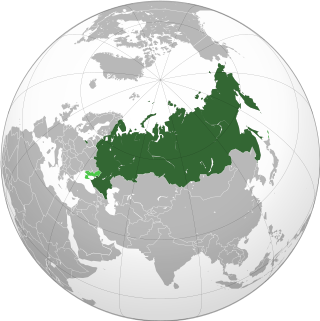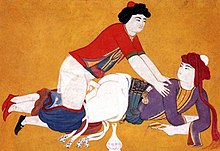This is a list of notable events in the history of LGBT rights that took place in the 20th century before 1949.
Lesbian, gay, bisexual, transgender, and queer (LGBTQ) personnel are able to serve in the armed forces of some countries around the world: the vast majority of industrialized, Western countries including some South American countries, such as Argentina, Brazil and Chile in addition to other countries, such as the United States, Canada, Japan, Australia, Mexico, France, Finland, Denmark and Israel. The rights concerning intersex people are more vague.

The rights of lesbian, gay, bisexual, transgender, and queer (LGBTQ) people in the United Kingdom of Great Britain and Northern Ireland have developed significantly over time. Today, lesbian, gay and bisexual rights are considered to be advanced by international standards.

Taiwan, officially the Republic of China (ROC), maintains an active conscription system in accordance with the regulations set by the government of the Republic of China. All qualified male citizens of military age in the country are obligated to perform 1 year on active duty military service or receive 4 months of military training.

Lesbian, gay, bisexual, transgender, and queer (LGBTQ) people in Russia face severe legal and social challenges not experienced by non-LGBTQ residents. Although sexual activity between consenting adults of the same sex is legal, homosexuality is disapproved of by most of the population and pro-LGBTQ advocacy groups are deemed "extremist" and banned. It is illegal for individuals to "promote homosexuality" and same-sex couples and households headed by same-sex couples are ineligible for the legal protections available to opposite-sex couples. Russia provides no anti-discrimination protections for LGBTQ people and does not have a designation for hate crimes based on sexual orientation and gender identity. Transgender people are not allowed to change their legal gender and all gender-affirming care is banned. There are currently no laws prohibiting discrimination based on gender identity or expression, and recent laws could be used to discriminate against transgender residents.

Lesbian, gay, bisexual, and transgender (LGBT) rights in Cyprus have evolved in recent years, but LGBTQ people still face legal challenges not experienced by non-LGBT residents. Both male and female expressions of same-sex sexual activity were decriminalised in 1998, and civil unions which grant several of the rights and benefits of marriage have been legal since December 2015. Conversion therapy was banned in Cyprus in May 2023. However, adoption rights in Cyprus are reserved for heterosexual couples only.

Lesbian, gay, bisexual, transgender, and queer (LGBTQ) people in Turkey face legal challenges not experienced by non-LGBTQ residents, though the overall situation is considered to be less repressive when compared to most other Muslim-majority countries.

Lesbian, gay, bisexual, and transgender (LGBT) people in Albania face legal challenges not experienced by non-LGBT residents, although LGBT people are protected under comprehensive anti-discrimination legislation. Both male and female same-sex sexual activities have been legal in Albania since 1995, but households headed by same-sex couples are not eligible for the same legal protections available to opposite-sex couples, with same-sex unions not being recognized in the country in any form.

Lesbian, gay, bisexual, and transgender (LGBT) people in Azerbaijan face significant challenges not experienced by non-LGBTQ residents. Same-sex sexual activity has been legal in Azerbaijan since 1 September 2000. Nonetheless, discrimination on the basis of sexual orientation and gender identity are not banned in the country and same-sex marriage is not recognized.

Lesbian, gay, bisexual, and transgender (LGBT) persons in TRNC (Turkish Republic of Northern Cyprus) face legal challenges not experienced by non-LGBT residents. Same-sex sexual activity has been legal in Northern Cyprus since 7 February 2014. Previous laws allowed three years prison sentences, according to Articles 171 and 173 of its criminal code. Female homosexuality was not criminalised. Arrests for homosexuality have occurred as recently as 2011.
The United States military formerly excluded gay men, bisexuals, and lesbians from service. In 1993, the United States Congress passed, and President Bill Clinton signed, a law instituting the policy commonly referred to as "Don't ask, don't tell" (DADT), which allowed gay, lesbian, and bisexual people to serve as long as they did not reveal their sexual orientation. Although there were isolated instances in which service personnel were met with limited success through lawsuits, efforts to end the ban on openly gay, lesbian, and bisexual people serving either legislatively or through the courts initially proved unsuccessful.

LGBTQ history in Turkey covers the development, contributions and struggles of lesbian, gay, bisexual, transgender, and queer (LGBTQ) people in the history of Turkey and their relation between Turkish politics from the abolition of the Caliphate to modern-day Turkey.

Istanbul Pride is a pride parade and LGBTQ demonstration held annually in Turkey's biggest city, Istanbul since 2003. Participants assemble in Taksim Square before marching the entire length of İstiklal Avenue. It has been described as the first and biggest LGBT event in Muslim-majority countries.

In the past most lesbian, gay, bisexual, transgender, and queer (LGBTQ) personnel had major restrictions placed on them in terms of service in the United States military. As of 2010 sexual orientation and gender identity in the United States military varies greatly as the United States Armed Forces have become increasingly openly diverse in the regards of LGBTQ people and acceptance towards them.
The issue of transgender people and military service in South Korea is a complex topic, regarding gender identity and bodily autonomy. Currently, transgender women are excluded from the military of South Korea.
This overview shows the regulations regarding military service of non-heterosexuals around the world.
South Korean military laws and procedures discriminate against sexual minorities, or lesbian, gay, bisexual, transgender, and queer (LGBTQ+) individuals, who serve in the military. At the time of enlistment, recruits are categorized based on their physical and mental health. Sexual minorities can be marked as having a “mental handicap” or “personality disorder,” which determines their status and duties as personnel. They can also be institutionalized in a mental facility or be dishonorably discharged. Military personnel have reported experiencing harassment, violence, and forcible revealing of their sexual orientation and/or gender identity.
Demet Demir is a Turkish LGBT activist. She was awarded the Felipa de Souza Award in 1997 for her activism.
Censorship of LGBTQ issues is practised by some countries around the world. It may take a variety of forms, including anti-LGBTQ curriculum laws in some states of the United States, the Russian gay propaganda law prohibiting the "promotion of non-traditional sexual relationships", the Hungarian anti-LGBT law banning "content portraying or promoting sex reassignment or homosexuality", and laws in Muslim-majority states such as Afghanistan, Saudi Arabia, Pakistan, and Malaysia prohibiting advocacy that offends Islamic morality.
Pink Life QueerFest or Queer Fest is an international LGBT themed film festival held in various cities of Turkey. The Queer Fest, held in 2011 for the first time, is the first LGBT themed film festival of Turkey. The festival, held in Ankara until 2013, is started to organized in Denizli and Mersin beginning from 2014.











